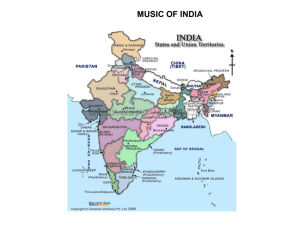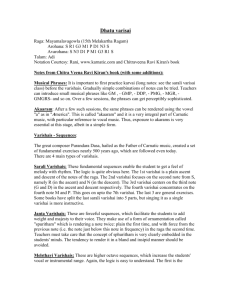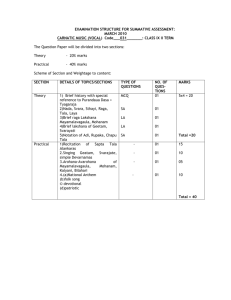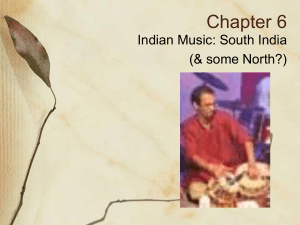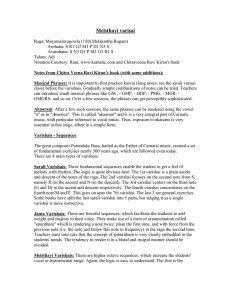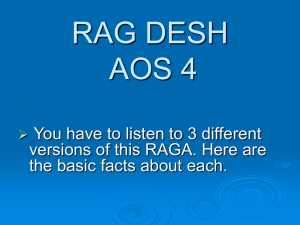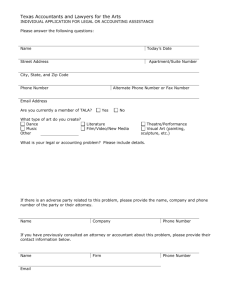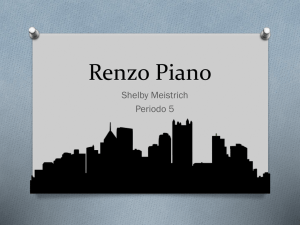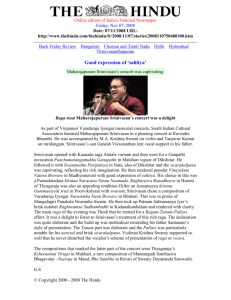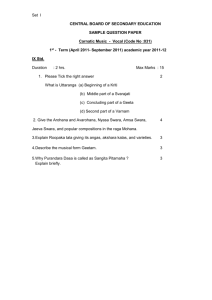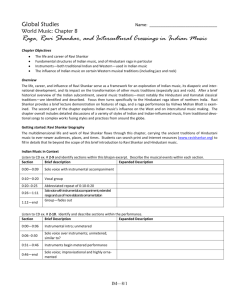doc - Tripod
advertisement
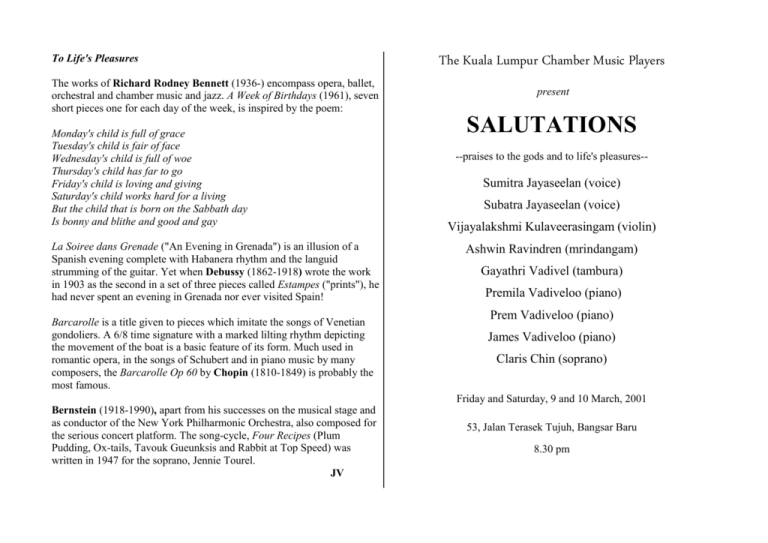
To Life's Pleasures The works of Richard Rodney Bennett (1936-) encompass opera, ballet, orchestral and chamber music and jazz. A Week of Birthdays (1961), seven short pieces one for each day of the week, is inspired by the poem: Monday's child is full of grace Tuesday's child is fair of face Wednesday's child is full of woe Thursday's child has far to go Friday's child is loving and giving Saturday's child works hard for a living But the child that is born on the Sabbath day Is bonny and blithe and good and gay La Soiree dans Grenade ("An Evening in Grenada") is an illusion of a Spanish evening complete with Habanera rhythm and the languid strumming of the guitar. Yet when Debussy (1862-1918) wrote the work in 1903 as the second in a set of three pieces called Estampes ("prints"), he had never spent an evening in Grenada nor ever visited Spain! Barcarolle is a title given to pieces which imitate the songs of Venetian gondoliers. A 6/8 time signature with a marked lilting rhythm depicting the movement of the boat is a basic feature of its form. Much used in romantic opera, in the songs of Schubert and in piano music by many composers, the Barcarolle Op 60 by Chopin (1810-1849) is probably the most famous. The Kuala Lumpur Chamber Music Players present SALUTATIONS --praises to the gods and to life's pleasures-- Sumitra Jayaseelan (voice) Subatra Jayaseelan (voice) Vijayalakshmi Kulaveerasingam (violin) Ashwin Ravindren (mrindangam) Gayathri Vadivel (tambura) Premila Vadiveloo (piano) Prem Vadiveloo (piano) James Vadiveloo (piano) Claris Chin (soprano) Friday and Saturday, 9 and 10 March, 2001 Bernstein (1918-1990), apart from his successes on the musical stage and as conductor of the New York Philharmonic Orchestra, also composed for the serious concert platform. The song-cycle, Four Recipes (Plum Pudding, Ox-tails, Tavouk Gueunksis and Rabbit at Top Speed) was written in 1947 for the soprano, Jennie Tourel. JV 53, Jalan Terasek Tujuh, Bangsar Baru 8.30 pm Salutations Programme Notes To the Gods To Goddess Saraswathi P Devasami Iyer M Vasudevachariyaar G N Balasubramaniam S Bhaarathiyaar Sarasi ruha sana priye amba (raga: naadai tala: adi) Maamavathu Sri Saraswathi (raga: hindolam tala: adi) Saraswathi namostuthe (raga: saraswathi tala: rupakam) Vellalai pool (raga: kaapi tala: adi) Sumitra and Subatra Jayaseelan (voice), Vijayalakshmi Kulaveerasingam (violin) Ashwin Ravindren (mrindangam), Gayathri Vadivel (tambura) To New Life, Spain and a Boatman Richard Rodney Bennett C Debussy F Chopin A Week of Birthdays La Soiree dans Grenade Barcarolle Op 60 Tonight's recital begins, appropriately enough, with invocations to Saraswathi, the goddess of arts, music and learning, the giver of knowledge. In ancient sculptures she is depicted clad in a white sari, seated on a white lotus holding a book and playing the veena. Although she is not worshipped much in temples, Saraswathi Pooja (Navarathiri) is offered annually by all for a successful and fruitful year. Ganamurthey (raga: ganamurthi tala: adi) Kurhaluthi manam ellaam (raga: kambodi tala: adi) Enna thavam seithanai (raga: kaapi tala: adi) Krishna is the Supreme Personality or Godhead and is the source of all incarnations (avataras). He stands in a three-fold bending form, dancing and playing the flute. As Arjuna's charioteer in the battlefield of Kurukshetra, he revealed the Bhagavad-Gita ("Song of God"), the foremost sacred text of the Hindus. Premila, Prem and James Vadiveloo (piano) To Lord Krishna Thyagarajah Oothakaadu Paapanaasam Sivan Vijayalakshmi Kulaveerasingam (violin), Ashwin Ravindren (mrindangam), Gayathri Vadivel (tambura) To Food L Bernstein Claris Chin (soprano), James Vadiveloo (piano) The religious nature of Carnatic music has its origins in the Vedas (4000 BC - 1000 BC), sacred texts in Sanskrit which take the form of sacrificial chants dedicated to the gods. Of the four Vedas, the Sama Veda laid the foundations for Indian music - the text was chanted to a scale of seven notes which contained all the important and known musical intervals. The music of the Sama Veda, initially practised throughout India, evolved into two distinctive musical systems during the 12th and 13th centuries Hindustani in the North and Carnatic in the South, the former externally influenced by Arabic and Persian styles as a result of Muslim invasions, the latter remaining true to its origins (Carnatic meaning "Old" or "Traditional" in Tamil). Four Recipes Tonight's songs to Saraswathi and Krishna are in Sanskrit, Telugu and Tamil. All of these come from the 16th century and onwards, the modern period of Indian music and are governed by the complex melodic (raga) and rhythmic (tala) structures characteristic of this musical tradition. Of the very many composers of Carnatic music, Thyagarajah stands as one of the most famous and prolific.
